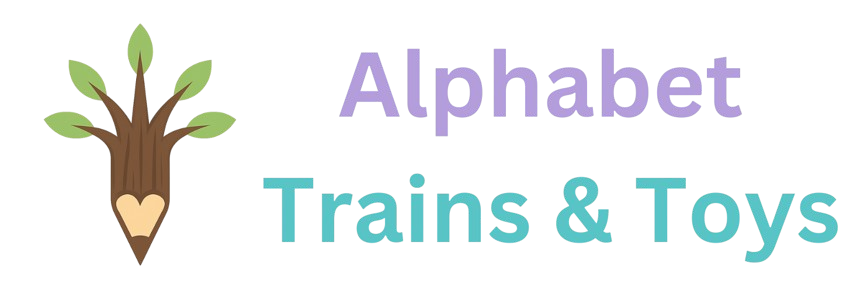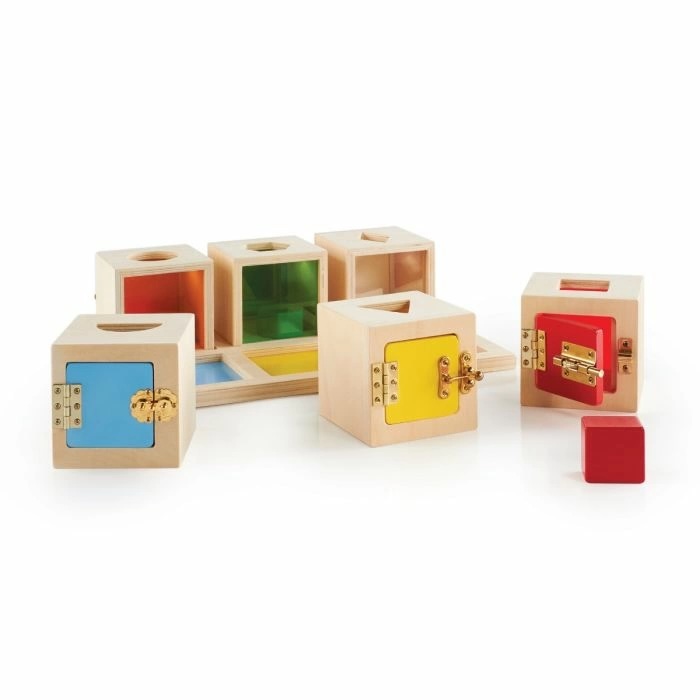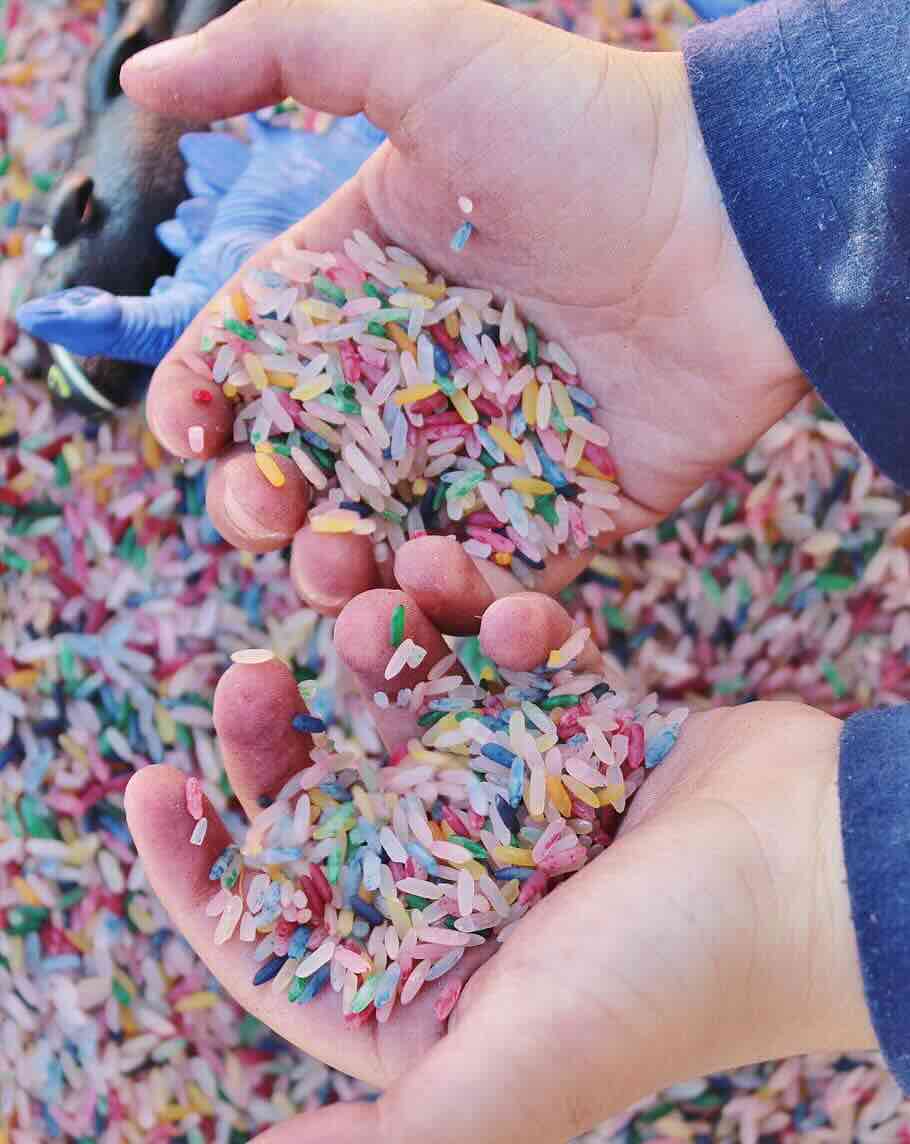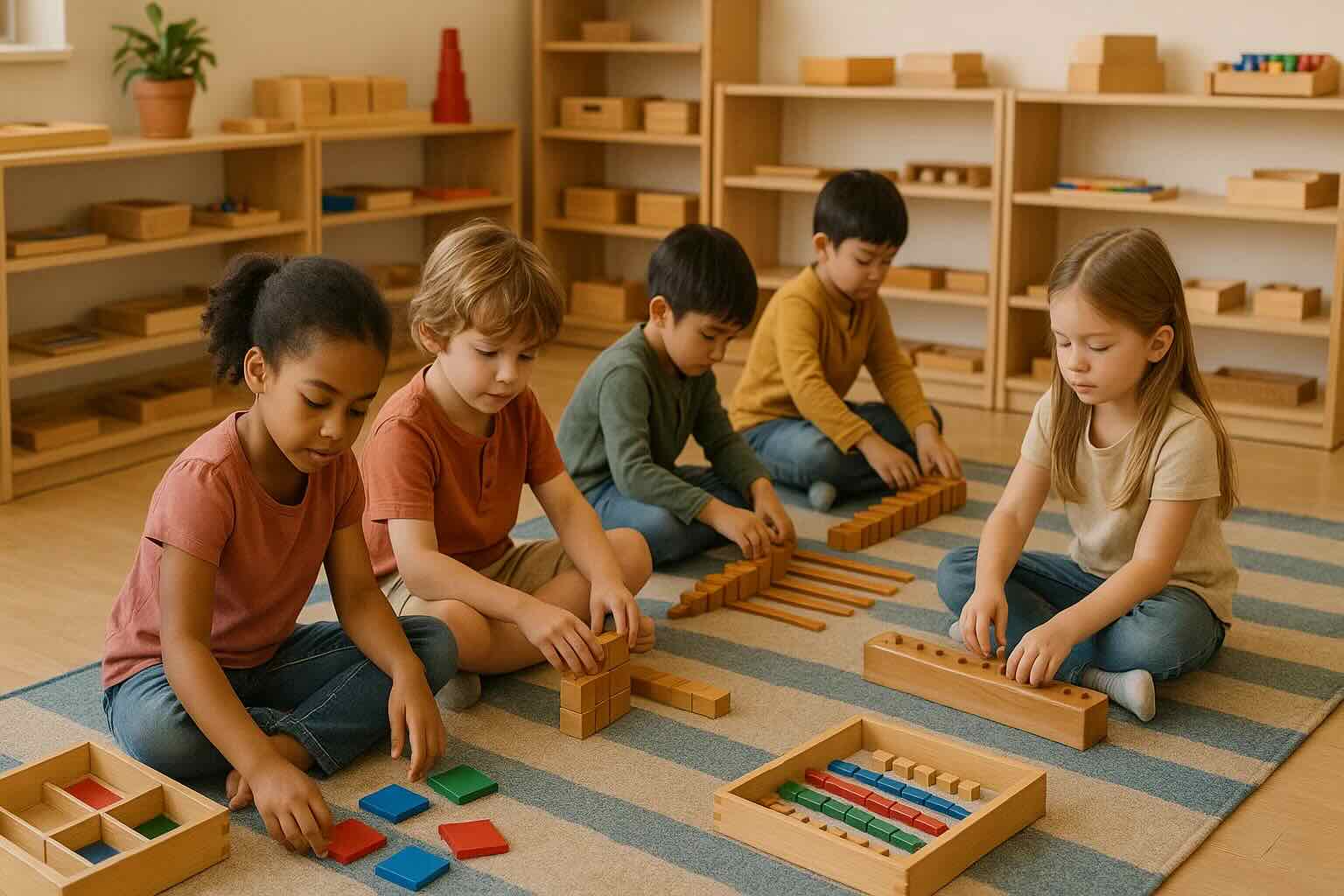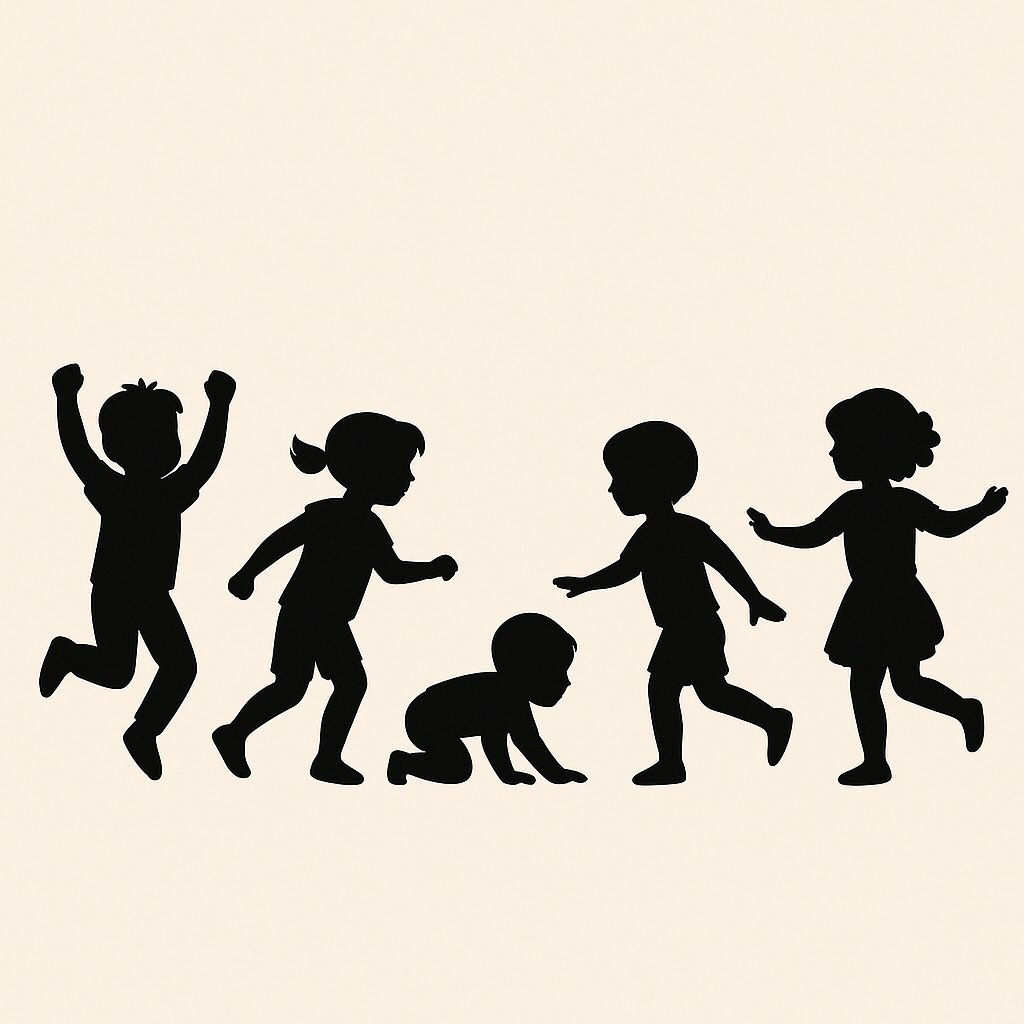When you think about classic children’s toys, what is the first thing to come to mind? We’re willing to bet many will think of wooden building blocks. No toy shelf can truly be complete without perhaps the most timeless toy of all.
It’s no real surprise that wooden blocks have been a staple toy for centuries with the benefits building with blocks offers young children. So what exactly are those benefits? How do those benefits grow as your child gets older? We’re going to answer those questions right here.
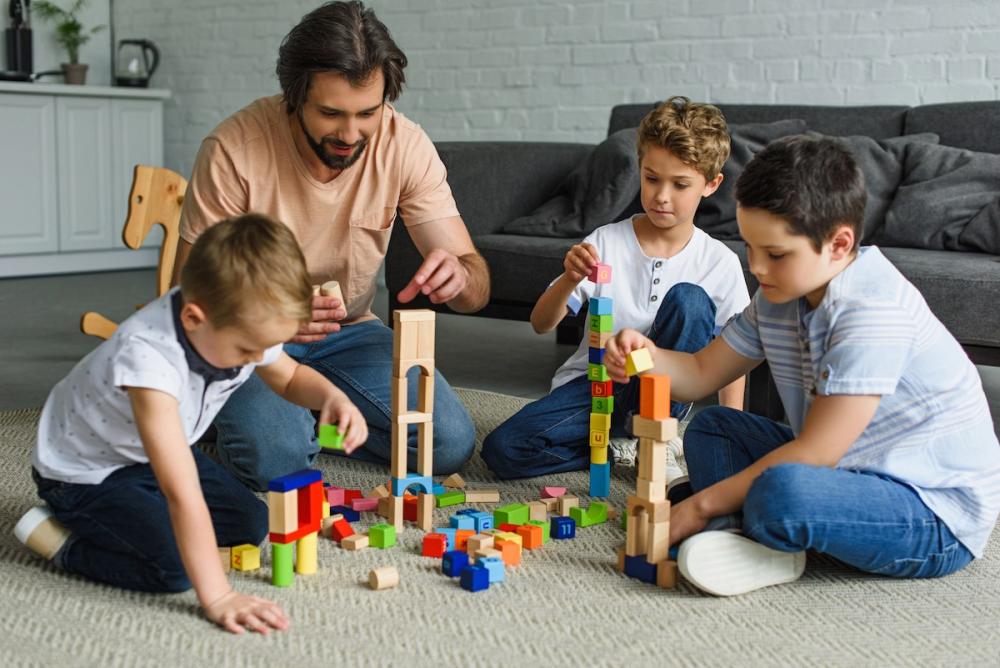
The Benefits of Block Play
The best thing about building blocks is how naturally their benefits grow with your child. While your one-year-old learns basic fine motor skills and problem-solving, they learn patterns and other math concepts around age four.
While the benefits change with your child’s age, building with blocks can aid their development for years. Let’s highlight these benefits:
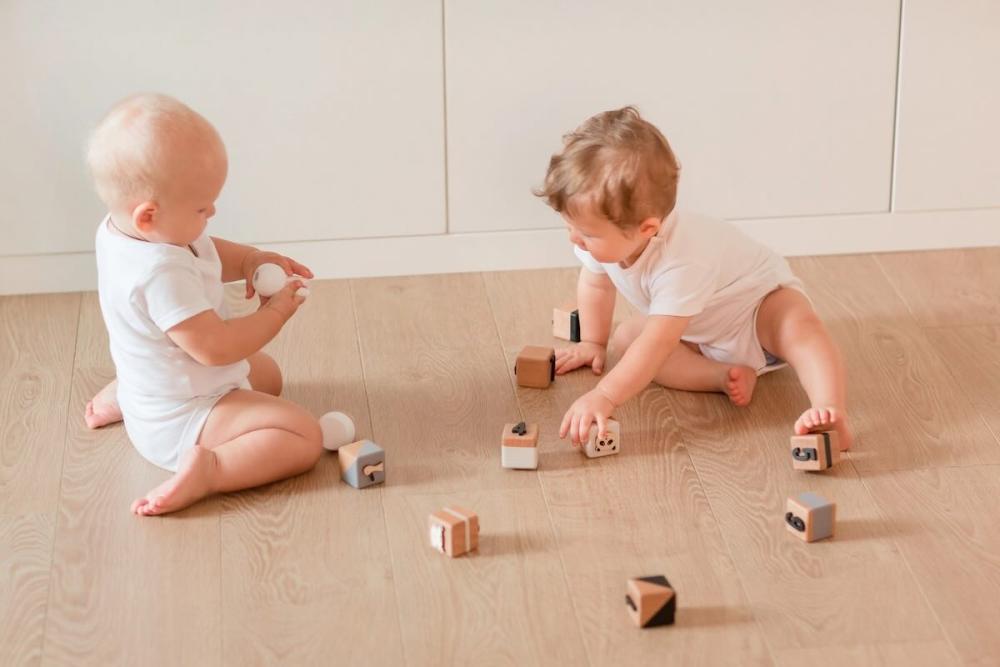
Brain-Building Benefits
The cognitive benefits building blocks come with are unmatched. Whether it’s problem-solving to get a desired result or developing object permanence by knowing where the blocks are even if they can’t see them, kids are building their brains while building castles. Aside from these examples, let’s briefly cover the other cognitive benefits that come with building block play:
- Blocks help teach “cause and effect.” What happens when the tower gets too high? Will it stay if we remove a block from the middle? These are questions you can ask your child to get them to understand that every action has a consequence.
- Building with blocks can increase their attention span. Have you ever heard a child speak about something they’re passionate about? They focus on that thing for far longer than something they’re not into. When children are focused on building a castle or tall tower, their attention span increases by doing something they enjoy.
- Blocks help enhance decision-making skills. “Do I use the small square or the big rectangle?” “Which block will fit in this open space?” These are just a few examples of how a child may use conscious decision-making while engaging in block play.
- Building blocks introduce other important skills. They are good tools for introducing concepts like color or size differences. You may also have your child spot differences, like “find which group has two blocks.”
Aiding Physical Development
In unison with brain-building, block play also provides an ideal environment for physical development. A child’s fine motor skills are at work when they neatly stack each block to prevent their structure from falling, but fine motor skills aren’t the only concepts of physical development at play here.
When working with blocks, your child will shift their body and move around to place a block in their desired location. These movements, like crawling, stretching, and scooting around, are all a part of a child’s gross motor skills.
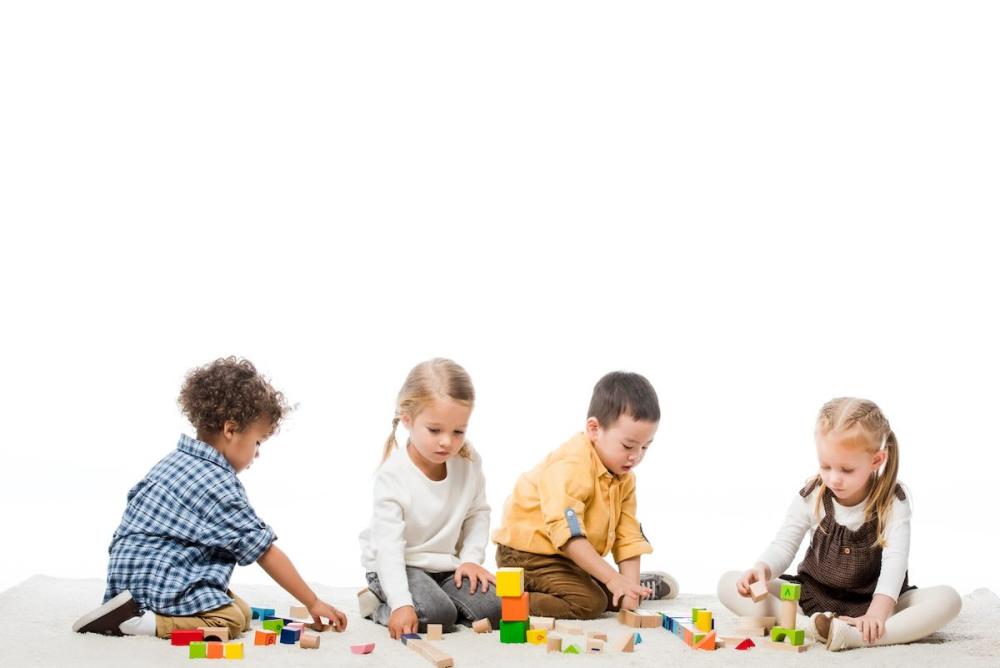
But how do blocks help a baby’s gross motor skills when babies aren’t even old enough to stack blocks on their own? Blocks can be used in other ways to help enhance a baby’s gross motor skills. During infancy and the early months, colorful blocks are a great tool for encouraging tummy time by giving them something interesting to look at.
As that same baby gets a little older and starts trying to sit on their own, bigger blocks can help them with trunk balance, which is one of the first gross motor skills a person develops.
Social-Emotional Learning
Building with blocks is an ideal activity for working together. Creating a structure with another person or in a group requires children to communicate what they’re thinking and feeling. This kind of communication is an important part of social-emotional development.
If your child accidentally knocks over their friend’s tower, both kids have an opportunity to practice empathy and work through the situation together. Beyond these examples, block play also calls for self-reliance when children are playing on their own.
Introducing Early Math Concepts
On a more concrete note, building blocks are an idealistic toy for learning early math concepts like problem-solving, counting, and basic addition and subtraction. Depending on the set you have, your child may also be able to practice sequences by creating shape or size patterns.
Building blocks are also used in early STEM education, as they require skills from all four aspects of STEM learning. Your child can learn how to make and test a hypothesis, put their engineering and math skills to the test, and create something completely new based on their experiences.
Introducing Early Literacy Concepts
While this benefit may seem a little more obscure, children do build their early literacy skills when playing with blocks. Talk to them about what they built and you will expand their vocabulary and boost their confidence. Kids also work on their communication skills when they work together with a build partner or talk to you afterward.
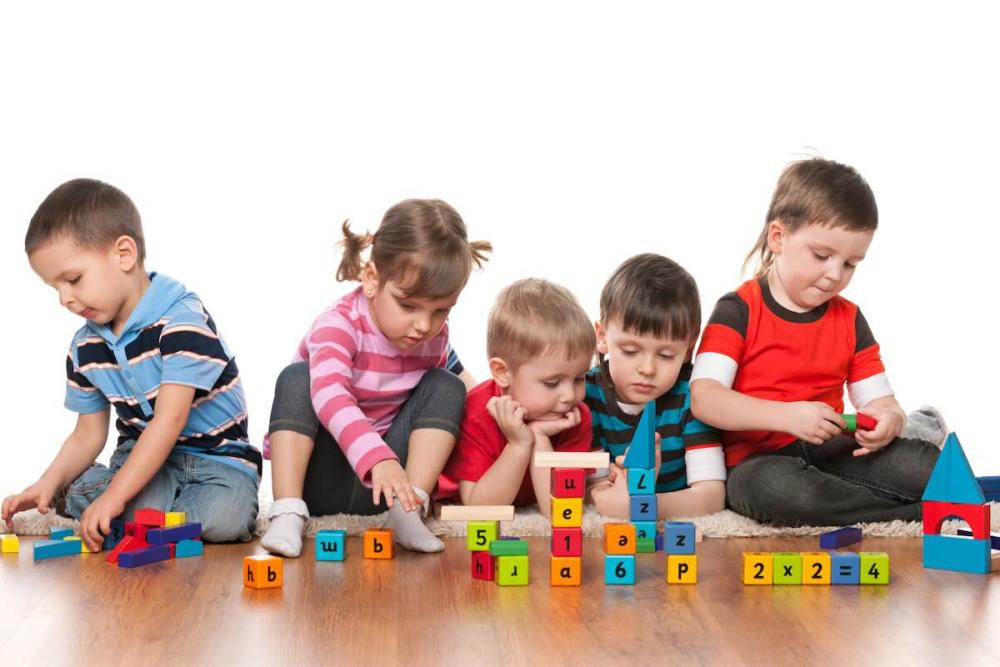
Some building block sets also have letters printed or engraved on cube faces. These sets are great for toddlers just beginning to learn their ABCs. As they gain confidence in identifying their letters, they can start putting together simple words.
Fostering Creativity and Use of Imagination
Block play unlocks a whole new world for children as they tap into their imaginations to create something new. While many toys are designed with a single purpose, building blocks are designed with open-ended and symbolic play in mind. Rather than having a set of rules and instructions, children can use their blocks to freely express their ideas, thoughts, and feelings.

The ability to use your imagination and be creative without any barriers is an excellent way to exercise emotional intelligence.
Embracing Sustainability and Simplicity
As a parent, would you rather have toys in your home that last a week or a lifetime? Would you rather your child play with an overstimulating toy or something that offers plenty of play options without overloading the senses? Not only are wooden building blocks simple in design, but they’re also sustainable alternatives to other mass-produced children’s toys.
However you engage in block play with your child, this simple toy will do more for their development than one may realize. Just remember to keep in mind your child’s age and interests and you’ll certainly find the right set for your child’s toy shelf.
Build Creativity with Wooden Blocks!
Unleash your child's imagination with our classic Wooden Blocks. These timeless toys are perfect for developing motor skills, problem-solving, and creative thinking, providing hours of educational play.
Explore Wooden Blocks